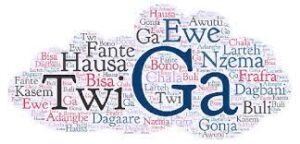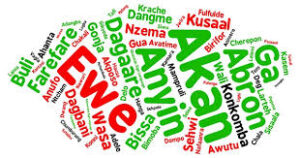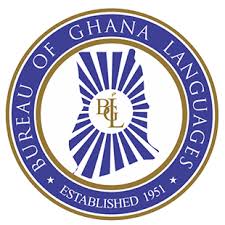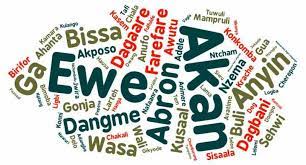For most people, language is often viewed as a means of communicating words and ideas. However, upon closer examination, language transcends mere transmission of words and ideas. Besides conveying words, ideas, and sounds, language importantly conveys cultural values, identity, and closeness.
This notion holds true for other African countries as well. Step into most Ghanaian or African family homes, and you’ll be struck by the language they speak. While English, French, and Portuguese, widely spoken in many parts of Africa, have enabled us to connect with people from around the world, these languages also erode a significant portion of our local languages like bushfires in a forest.
The aforementioned languages are not only treated as official languages in the country, but they are also spoken every day and everywhere.
Encounter children or young people on the streets today, speak to them in any language they are related to, and you’ll be surprised by the number who can respond in the local language.

Once, while walking around a Junior High School during break time, I met five pupils. I decided to engage with them. Out of the five students, only one could speak her local language. The others could barely manage a word or a phrase, and some didn’t even know where they hailed from in Ghana.
This prompted me to repeat the exercise with children on a church premises, this time with varying age groups, and the result was the same. I’m not blaming the children; rather, the concerning part is that some adults and parents are not bothered by this trend.
Some universities in Ghana and other parts of Africa are tirelessly working to translate many of these local languages into written and readable forms, but they mostly end up in archives. Years ago, Ghana encouraged the teaching of local languages in elementary schools. Today, it’s either optional or completely abandoned.
An ethnic group or tribe that loses its language or languages risks losing its cultural values, beliefs, and sense of identity. Some believe that the diminishing use of local languages today should be blamed on intermarriages with other tribes or nationalities. However, this factor should actually be advantageous for parents and especially children; they have the opportunity to learn two local languages from both parents.
In many cases, couples from different ethnic groups tend to resign from their respective local languages and instead use a “neutral language” to communicate among themselves and later pass it on to their children. Whether a child learns a local language of one of the parents often boils down to arguments about patriarchal or matriarchal lineage.
During my upbringing, parents in urban areas often allowed their children to visit their ancestral villages or towns during school holidays. This provided them with the opportunity to listen, learn certain words, and understand the cultural values of their heritage. However, today, various excuses such as concerns about security, comfort, and education (holiday classes) are given by parents and guardians.

In the past, there were parents who lived and worked in different ethnic cities or towns but still maintained and taught their children their respective ethnic languages. For example, my mother (Theresa Aazine) used to say, “You are free to learn and speak any other language you want out there, but when you are in my house, it’s only Dagare” (the language spoken in most parts of the Upper West Region of Ghana).
In Ghana, the Akan language seems to be thriving well, perhaps owing to the fact that their language and culture are actively promoted on various platforms.
When God created these different languages for the diverse people in various countries with their distinct ethnic backgrounds, He also gave us the capacity to learn, assimilate, and understand them. Humans are capable of learning more than one language.
Unfortunately, today, the cultures of different Ghanaian ethnic groups, and African cultures in general, have been reduced to mere events for entertaining guests and places we introduce foreigners to, rather than something lived and appreciated daily.
Knowing your language connects you not only to words, sounds, and ideas but also brings out your true identity (who you truly are), sense of belonging (where you belong), and values (what you stand for). The knowledge that you are Ewe or Ga (two different ethnic groups in Ghana) is not just a feeling but an identity and a way of life.
Today, some adults or parents are consciously or unconsciously imposing values, beliefs, and identities on young people that may not align with their diverse ethnic backgrounds. This should concern everyone, as it may lead to a loss of cultural values, beliefs, and identity for future generations.
In scripture, when God expressed His love to the world, He did so through the Jewish people, language, and culture; Jesus lived, moved, and demonstrated God’s love through a specific language and culture, identifying with the Jewish people.
We should all take pride in who we are, where we come from, and the languages we speak. We must speak our languages with pride, especially to younger generations, and joyfully practice our cultures. It is never too late at whatever age to learn a language. All you need is determination, motivation and tenacity.

Many young people today view various Ghanaian cultural values, traditions, and beliefs as outdated. Parents, churches, chiefs, the Ghana Education Service, and all well-meaning Ghanaians should prioritize this issue and preserve our cultural values, identity as Ghanaians, and traditions by emphasizing the use of our local languages.
If local languages become extinct, our cultural values and identity will diminish as well. It’s imperative to take action now to safeguard our linguistic and cultural heritage for future generations.
Rev. Fr. Nicholas Nibetol Aazine, SVD
Society of the Divine Word, Ghana province
A Catholic Religious and Missionary Congregation. Loving Christ through Humanity.



